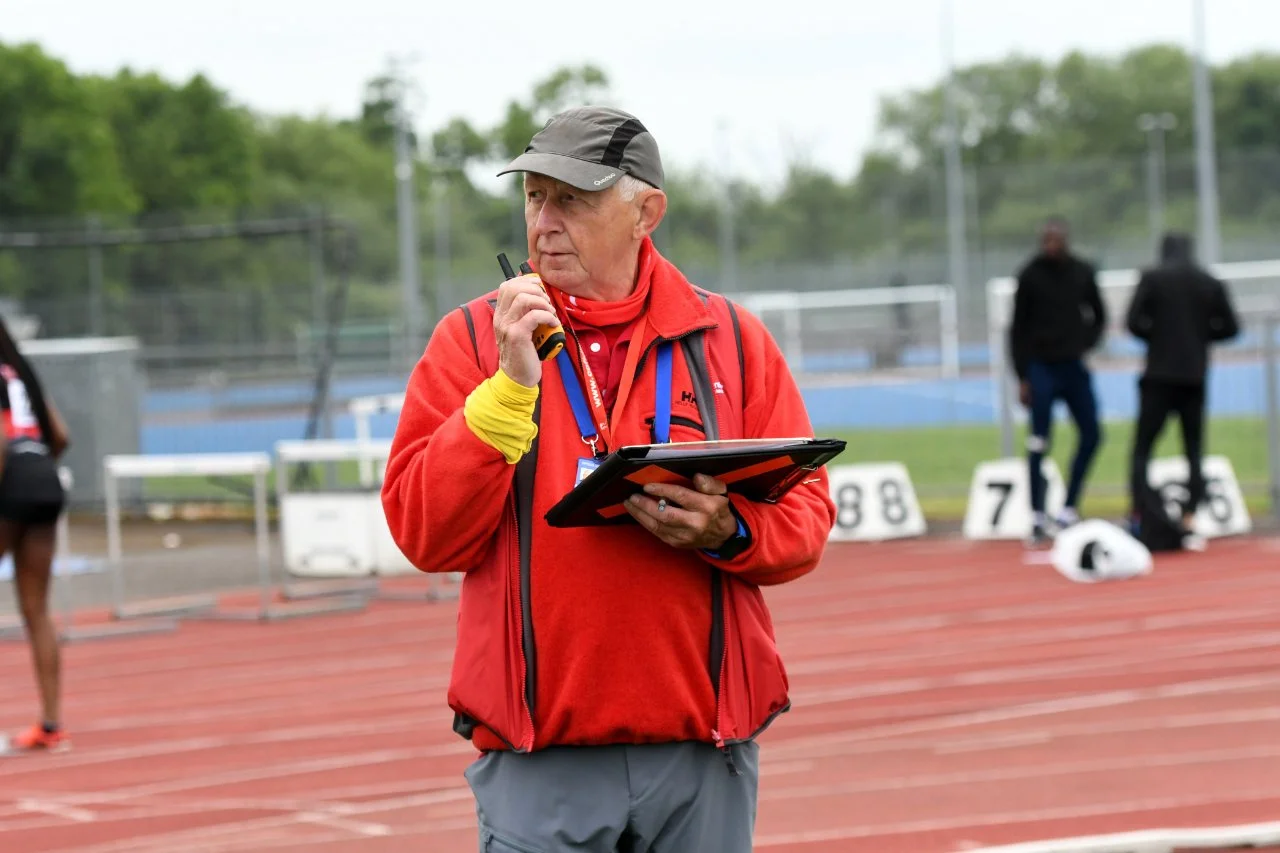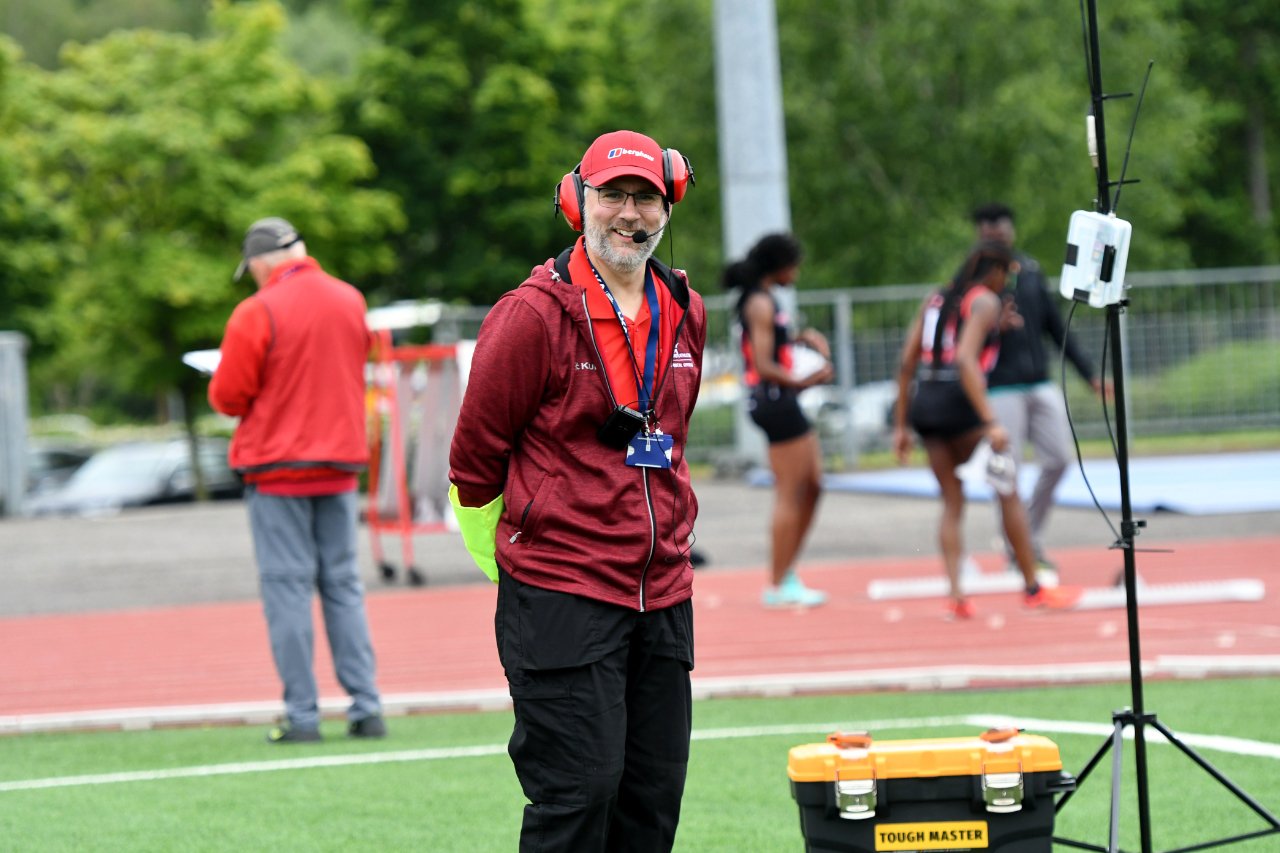Athletics officials
How becoming an official will help your friends and family compete, support the club and be great fun!
Types of official
Timekeepers
Timekeepers use accurate stopwatches to time each competitor in the race. Then, they cross-check to ensure the results are accurate.
Where an event uses electronic timing (photo finish), timekeepers act as a backup.
Smaller meetings need a minimum of four timekeepers, but larger meetings need eight or more.
Track judges
Track judges note the order athletes finish as well as:
count the laps in longer races
check relay changeovers and position of hurdles
check that athletes don't impede others.
Field judges
The four jumps are:
high jump
long jump
pole vault
triple jump.
The four throws are:
discus
hammer
javelin
shot.
Field judges:
measure distance or height, and mark each field card
check take-off and landing of jumps
check that the athlete correctly performs the jump or throw
retrieve implements.
There are up to five field judges per event, and there may be six events simultaneously, depending on the stadium's layout.
Training
The officials' course, usually a half-day or evening, will give you the knowledge to start you at level 1. You'll probably complete the sports health and safety course simultaneously. It is not just 'red tape' – speeding javelins and sprinters can be dangerous!
Visit the England Athletics website for details about available courses.
Paying for courses
The club finances courses in return for some commitment.
Other ways to volunteer
We welcome volunteers without qualifications to 'officiate' because not all roles outside the throwing sector require a health and safety certificate. Visit the track and field support page for details.
So come and volunteer! It will give you an idea of what's involved – and you'll see the action close-up!


